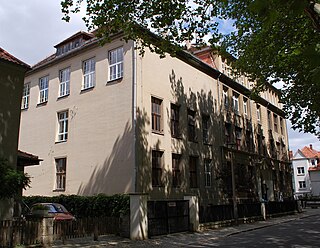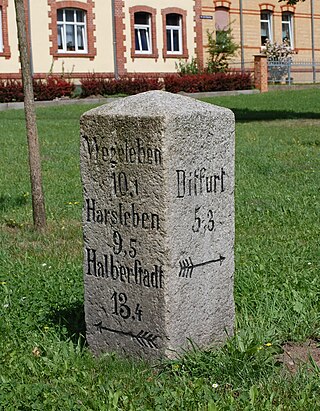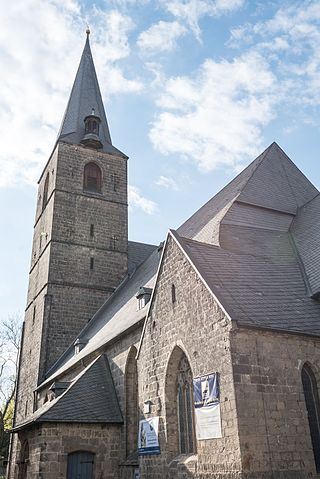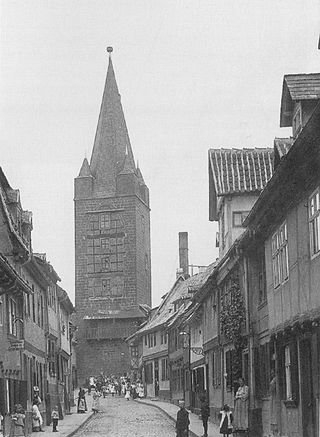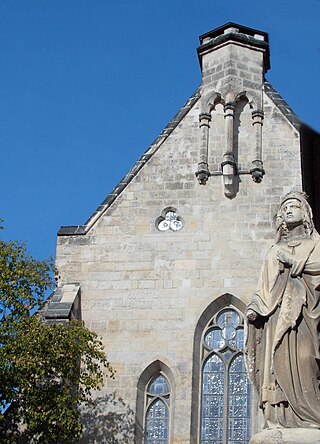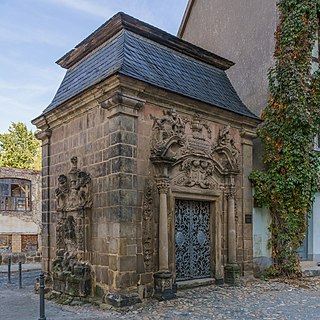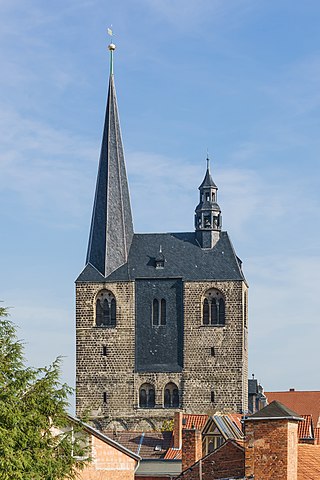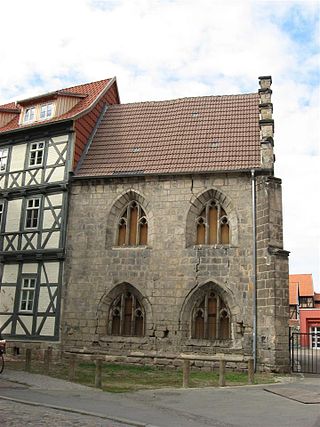Self-guided Sightseeing Tour #2 in Quedlinburg, Germany
Legend
Tour Facts
1.9 km
23 m
Experience Quedlinburg in Germany in a whole new way with our free self-guided sightseeing tour. This site not only offers you practical information and insider tips, but also a rich variety of activities and sights you shouldn't miss. Whether you love art and culture, want to explore historical sites or simply want to experience the vibrant atmosphere of a lively city - you'll find everything you need for your personal adventure here.
Individual Sights in QuedlinburgSight 1: Berufsbildende Schule J. P. C. Mette
The Berufsbildende Schulen J.P.C. Heinrich Mette Quedlinburg is a vocational school in Quedlinburg, Saxony-Anhalt, Germany. The school building at Bossestraße 3 is a listed building.
Wikipedia: Berufsbildende Schulen J.P.C. Heinrich Mette Quedlinburg (DE)
Sight 2: Wegestein
The signpost in the street Gröpern is a listed signpost in Quedlinburg in Saxony-Anhalt.
Wikipedia: Wegweiser (Gröpern, Quedlinburg) (DE), Heritage Website
Sight 3: St. Aegidii
St. Aegidii is a late Gothic church in Quedlinburg, Germany. In its present form, it is a three-aisled hall church with a southern transept, rectangular choir and west tower.
Sight 4: Schreckensturm
The Schreckensturm, also known as the Schreckensdüvel, is a medieval defensive tower of the city fortifications of the city of Quedlinburg in Saxony-Anhalt. In modern times, holiday apartments were set up in the listed tower.
Sight 5: Sankt Mathilde
St. Mathilde, also St. Mathildis, in Quedlinburg is the parish church of the Roman Catholic parish of St. Mathilde. It belongs to the Catholic Pastoral Region of the Harz in the Diocese of Magdeburg and is registered in the Quedlinburg Register of Monuments.
Sight 6: Nordharzer Städtebundtheater
Das Nordharzer Städtebundtheater ist ein Dreispartenhaus in der Region Harz in Sachsen-Anhalt. Der Bühnenbetrieb ging 1992 aus der Fusion des Stadttheaters in Quedlinburg und des Volkstheaters in Halberstadt hervor und wird seither unter einer gemeinsamen betriebswirtschaftlichen und künstlerischen Leitung geführt.
Sight 7: Goetzesches Mausoleum
The Goetzsche Mausoleum, also known as Grufthaus Gebhardt or Grufthaus Goetze, is a listed mausoleum in the old town of Quedlinburg in Saxony-Anhalt, Germany.
Sight 8: Marktkirche
The Marktkirche St. Benedikti is a church building of the Protestant parish in Quedlinburg.
Wikipedia: St. Benedikti (Quedlinburg) (DE), Website, Youtube
Sight 9: ehemalige Franziskanerkapelle
The Franciscan Building, also known as the Franciscan Chapel, is a listed building in the town of Quedlinburg in Saxony-Anhalt, Germany.
Share
How likely are you to recommend us?
Disclaimer Please be aware of your surroundings and do not enter private property. We are not liable for any damages that occur during the tours.
GPX-Download For navigation apps and GPS devices you can download the tour as a GPX file.
